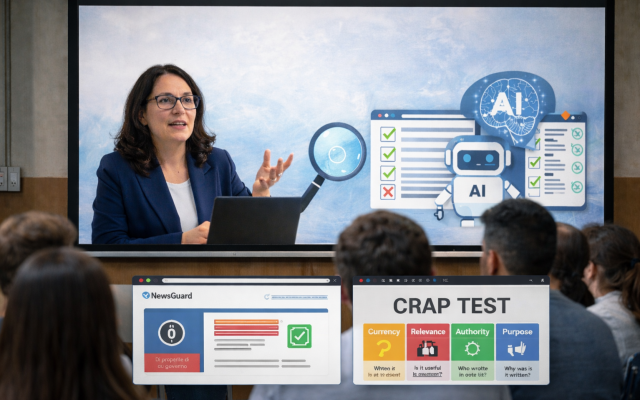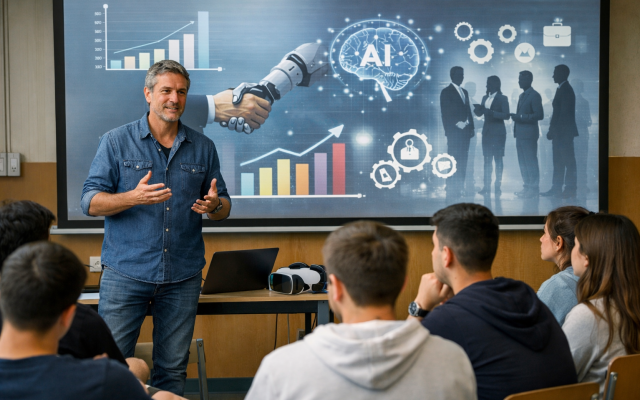When the body is not there. New technology replaces human bodies.
The Social Antimafia Festival, promoted by the Department of Economics, Management, and Institutions (DEMI) that was held today at the “Federico II” University of Naples (Monte Sant'Angelo Campus), represented a unique opportunity to discuss technology, social justice, and the fight against all forms of mafia.
The Fondazione Mondo Digitale had the opportunity to highlight its commitment as a strategic actor in social innovation and in the promotion of an economy of justice. With the participation of Director General Mirta Michilli in the panel on “When the body is not there. New technology replaces human bodies,” the Foundation underlined the importance of a holistic approach that integrates research, action, development, and implementation (ARD&I) to address the challenges posed by new technology and its integration into society.
In the company of experts such as Luigi Amodio, co-founder of the IDIS-Città della Scienza Foundation, Enzo Lipardi, founder of the Italian Innovation Factory, and Antonio Pescapè, Professor of Electrical and Computer Engineering, we discussed the potential and challenges brought about by these innovations.
The integrated research-action, development and implementation (ARD&I) programme of the Fondazione Mondo Digitale is an exemplary model of how organizations can operate concretely in communities to generate positive and lasting social impacts.
Mirta Michilli: “Today, more than ever before, it is necessary to be aware of the values that guide - and that we hope guide - technological advancement. For over twenty years, we have been committed to a democratic knowledge society. We work so that no one is excluded from the benefits of innovation, but also so that everyone is able to acquire the tools necessary to respond to our challenges. In 2023, we reached 150,000 people with our services. This makes us proud but also drives us to reflect on how necessary our work is, on how systemic interventions like ours are fundamental for the growth and development of our country.”
Luigi Amodio: “The title of our meeting may need a change. I would add a final question mark. Do new technologies replace human bodies? In a moment of great change, the mistake not to be made is to forget about material-ness. Technology needs it, more than you imagine.”
Enzo Lipardi: “When we think about poverty today, we realize that it is no longer just an economic factor. Poverty also means encountering barriers to culture. And today, those who do not have access to digital culture are cut off from all those processes of economic, social, and technological innovation that are transforming the world.”
Antonio Pescapè: “Humankind has been working on AI since 1950, when Alan Turing asked himself: can machines think? A question that he left pending for a different reason than what most expect. Turing's main difficulty was finding a definition for the verb "to think." What does it mean? From that point on, we entrusted machines with computing power first, then memory capacity. Finally, today, the ability to create. A capacity that until recently was exquisitely human. So, it is clear: a prerequisite for enjoying the advantages of new technology and innovation is knowledge. If you don't have it, you are automatically excluded.”
The Fondazione Mondo Digitale will continue to work closely with communities, institutions, and international partners to build a future in which technology serves humanity and contributes to a more equitable and sustainable world.



